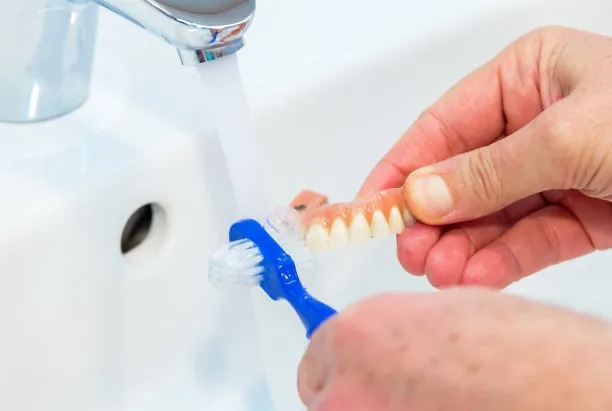Summary: Dental implant procedures can significantly enhance a persons quality of life by restoring functionality and aesthetics to the mouth. However, the success of such procedures and the recovery process relies heavily on numerous factors. This article delves into important considerations for candidates seeking dental implants, precautions that enhance the likelihood of successful outcomes, steps in the recovery process, and post-operative care essential for maintaining oral health. By understanding these critical elements, individuals can set realistic expectations and proactively contribute to their recovery, ensuring the long-term success of their dental implants.
1. Candidate Evaluation and Selection Criteria

Before considering dental implants, its crucial to undergo a thorough evaluation. This initial assessment will help identify if youre a suitable candidate for the procedure. Dentists typically look at factors such as your dental hygiene practices, overall health, and specific bone structure. A well-prepared patient with good health is likely to achieve a more successful outcome.
In particular, individuals with chronic conditions such as diabetes or heart disease must discuss these issues with their dental professional. Certain medical conditions could affect the healing process and the stability of the implants. Understanding these aspects early on helps set realistic expectations.
Radiographs and 3D imaging play a vital role in evaluating the jawbones density and the sinuses position. These images allow the dentist to create a customized treatment plan that accommodates your unique oral anatomy, ensuring that implants fit perfectly and are positioned well for durability.
2. Importance of Pre-Operative Preparations
Preparing for dental implant surgery is as essential as the procedure itself. Patients should practice good oral hygiene in the weeks leading up to their surgery, as bacteria can lead to post-operative infections. Regular brushing, flossing, and possibly the use of antiseptic mouthwash can significantly reduce the risk of complications.
Moreover, it’s advisable to discuss any medications or supplements you are taking with your dental team. Certain drugs, particularly blood thinners, should be managed appropriately before the surgery to reduce bleeding risks. Following your dentists advice regarding dietary restrictions is also crucial in symbolizing readiness for the operation.
Lastly, organizing the logistics for post-surgery recovery is beneficial. Have someone accompany you to the office and help you home post-procedure, as you may be under sedation or anesthesia. Having support during the recovery period sets a positive tone for healing.
3. Understanding the Recovery Process
The recovery process following the dental implant procedure can vary significantly from one patient to another. Typically, the initial healing period lasts a few days to a week, where discomfort, swelling, and bleeding may be present. Patients should closely monitor these symptoms and contact their dentist if they persist or worsen.
During recovery, its crucial to adhere to the post-operative instructions provided by your dentist. These might include a soft food diet for several days, avoiding strenuous activities, and using ice packs to mitigate swelling. Proper rest allows the body to focus on healing, so avoiding excessive physical exertion in the immediate days post-procedure is highly recommended.
Moreover, attending follow-up appointments is vital to assess the healing progress. Your dentist might take X-rays during these visits to ensure the implants are integrating correctly with your jawbone. Regular communication with your dental team is essential in addressing any potential issues early and ensuring a smooth recovery.
4. Long-Term Care and Maintenance
Long-term care for dental implants is crucial for their durability and success. Just like natural teeth, maintaining oral hygiene is vital. This means continuing to brush and floss regularly while also considering professional cleanings at least twice a year. This preventive care helps mitigate the risks of gum disease, which could affect implant stability.
Additionally, patients should quit smoking if they have this habit, as smoking impacts blood flow and can severely affect the healing process. A commitment to a healthier lifestyle, including a balanced diet and regular dental check-ups, will significantly contribute to the longevity of dental implants.
Finally, recognizing potential signs of problems early can be a game changer. Patients should watch for any unusual discomfort, looseness of the implant, or changes in the surrounding gum tissue. Awareness and timely action are crucial to ensuring the continued health and effectiveness of dental implants.
Summary:
Dental implant procedures can transform lives by restoring both functionality and aesthetics. Understanding the important considerations, proper pre-operative preparations, the recovery process, and long-term maintenance are essential for success. By actively engaging in your dental care, you empower yourself toward achieving the best outcomes.
This article is compiled by Vickong Dental and the content is for reference only
Vickong Dental
Vickong Dental is a large medical group established in Hong Kong in 2008 by professors from well-known medical universities in Guangdong and Hong Kong, as well as medical doctors from key national '985' universities (including Master's supervisors and senior professors). The chain of branches brings together expert dentists with PhDs and Master's degrees from Hong Kong and Mainland China, committed to providing high-quality dental treatment.
"Vickong Dental Practices the University Motto of 'Healing and Serving Society,' with a Stable Operation for Sixteen Years. It Has Been honored with Hong Kong Enterprise Leaders's Choice,' and is a Global Trusted Implant Center for the Nobel Implant System. Recommended by Hong Kong Metro Broadcast and Guangdong Television, it Serves Customers from Over Thirty Countries and Regions, Gaining the Trust and Favor of Citizens from the Guangdong-Hong Kong-Macau Greater Bay Area and Surrounding Cities.

Thousands of customers' unanimous praise
The most recognized and highly recommended dental service by customers in the Guangdong-Hong Kong-Macau Greater Bay Area
We Ensure You Receive Detailed Care and Attention Here
Hong Kong standards, Shenzhen prices, Your Trusted English-speaking dentists

Vickong Dental Medical-Grade Instrument Disinfection Process
Vickong Dental Medical-Grade Instrument Disinfection Process

Vickong Dental Chain: A Warm and Comfortable Environment for Treatment






Appointment Hours

Q&A
Why choose Vickong Dental?
Vickong Dental practices the university motto 「Medicine to Benefit Society」, with each branch bringing together highly qualified dentists with doctoral and master’s degrees from Hong Kong and the Mainland, and has maintained seventeen years of steady operation。Recipient of 「2024 Hong Kong Enterprise Leaders Brand」, 「2025 Hong Kong Enterprise Leaders Brand」, a Nobel Biocare Global Trusted Implant Center, and a brand recommended by Metro Radio Hong Kong and Guangdong TV。
To date, we have served customers from more than thirty countries and regions,earning exceptionally high word-of-mouth recognition and trusted recommendations from residents across the Guangdong-Hong Kong-Macao Greater Bay Area and surrounding cities
We have eight major branches in Zhuhai、Shenzhen,and a consultation and service assurance center in Hong Kong,so you can book a free consultation at any time for any questions,which is very reassuring.
If I do not accept the quotation after the CT scan, will I be charged??
No! As long as the actual treatment has not started, you will not be charged any fees.
Will there be any additional charges during the treatment process?
No, there won’t be any additional charges. Before treatment begins, we will clearly explain the treatment plan and its corresponding fees. Only after the patient agrees and signs the consent form will we proceed with the dental service.
Can I pay in Hong Kong dollars?
Yes. Vickong Dental accepts payment in Hong Kong dollars. The amount will be converted based on the exchange rate of the day, and the applicable rate will be clearly communicated to you in advance.
Can I reschedule my appointment at any time?
Yes. Please contact us via **WeChat** or **WhatsApp** as early as possible, providing your original appointment time and details, along with your preferred new date and time slot for rescheduling.













